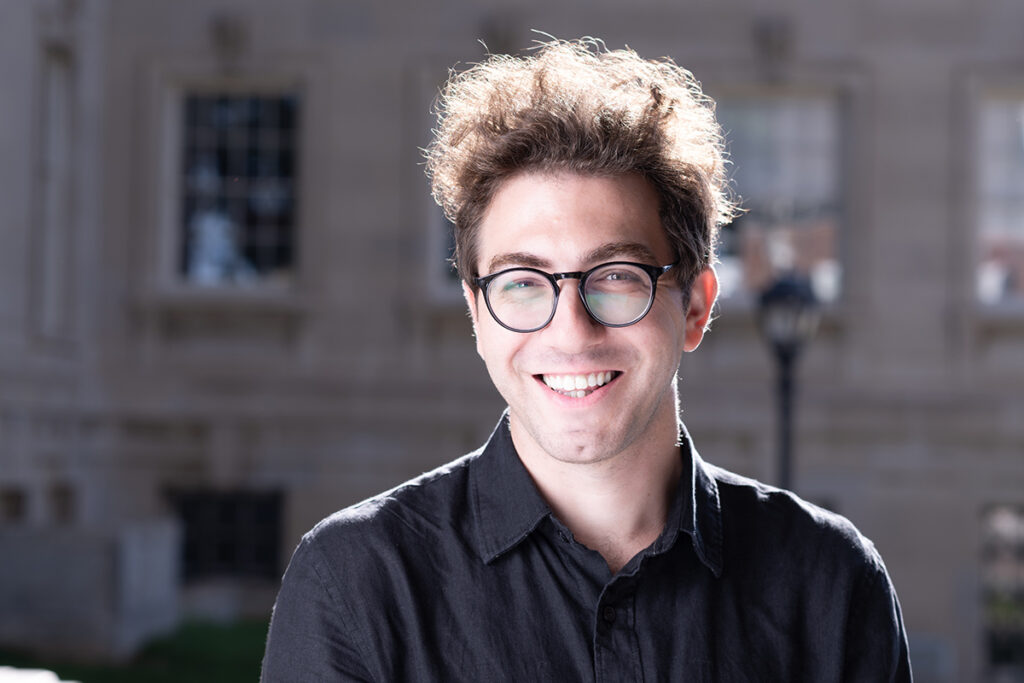Learn more about Akiva Zamcheck, assistant professor of music

Akiva Zamcheck | Photo by Adam Atkinson
What I study and why: What political and economic factors determine the life cycle of small venues and large institutions? How do these factors relate to political content in contemporary performance? Music is slippery, and institutions and artists may claim to support a cause while actually promoting an opposing one. I look for tools to clarify the dominant role music serves in a given political context. Currently I’m studying mid-late 20th-century musicians who repudiated their own work after concluding they had spent their careers playing for the wrong team. How can we avoid such mistakes and try to be precise about the interests we serve when we create, perform, and promote music?
This fall I’m teaching: World Music Traditions and Audiodrama. World Music Traditions is a rapid exploration of music and sound in several areas pressed by inter-imperialist conflict. In Audiodrama, we dissect manipulative forms of social media sound and try to subvert them through collaborative projects and analysis.
What students can expect from me: Each class is an experiment. Let’s see what makes sense and what’s possible given the interests, initiative, and abilities of all involved.
Getting to know me: As a graduate student, I rollerbladed straight through the entrance and into an orchestra seat for a performance at the New York Metropolitan Opera. I intend to do it again.
Continue reading to meet more of Lafayette’s newest faculty members.
